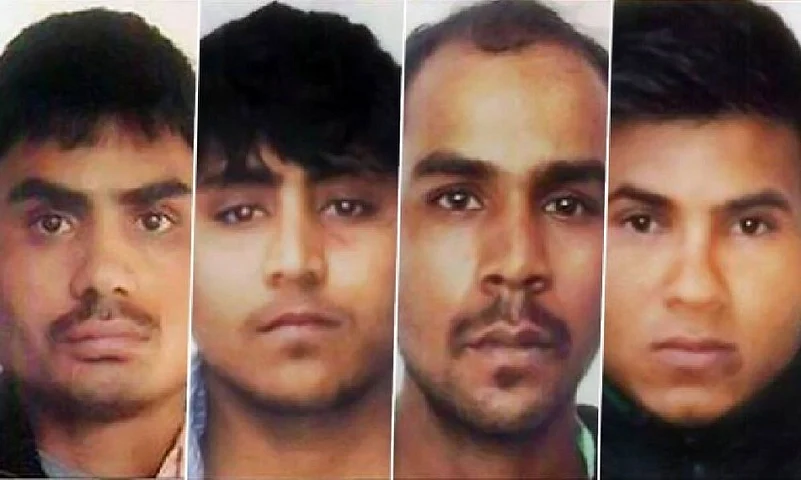The Delhi jail manual provides certain conditions under which a death convict's hanging will be postponed. One of them is a physical illness. This is different from mental illness. While mental illness is difficult to feign, physical injuries can be self-inflicted.
The law says if a death row convict develops an acute or serious (not chronic) physical illness, the jail superintendent will take the medical opinion to determine the degree of physical disability sufficient to justify the postponement of the execution.
He will postpone the hanging and submit a report to the Inspector General with the probable date on which the prisoner is likely to become physically fit for execution.
The four death row convicts in the Nirbhaya gang-rape and murder case have no legal remedy available which can delay their hanging.
The session court has fixed 5:30 am on March 20 as the date for their hanging.
The jail manual hasn’t listed acute or serious physical illness. It is up to a medical practitioner, who is on the role in Tihar Jail, to decide the degree of disability.
However, medical experts are of the view that many self-inflicted injuries can fall into this category. “If a convict breaks his limb, it is a serious physical injury,” Dr Arun Pandey, an orthopaedic, says.
It is due to this reason the jail manual mandates several special provisions for death row convicts. For instance, if a convict exhausts all legal options, he is kept in a separate cell away from other prisoners and under day and night surveillance.
“A guard shall in no case be given more than two hours duty at a stretch,” the jail manual said.
Further, his cell is thoroughly inspected by jail officials every day so that he cannot possess any object to harm himself.
“Though I don’t remember any death row convict tried to cause any harm to himself to postpone hanging, yet one cannot rule out such possibility especially with these four death row convicts as they are relatively younger than those who were hanged in the past,” says a jail official requesting anonymity.
He further informed that due to the SC judgment in 2014 in Shatrughan Chouhan case, jail officials cannot cover up or ignore serious injury of death row convicts.
In 2014, the SC made it mandatory to conduct post-mortem to ascertain the reason for death.
“Post-mortem is mandatory after the SC judgement. If a jail superintendent allows the hanging of a convict with a serious physical disability, a post-mortem will reveal the truth. The jail superintendent will face action for contempt of court,” Sunil Gupta, former law officer, Tihar Jail, says.
















